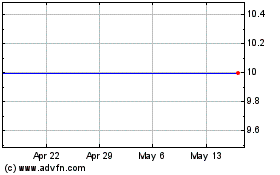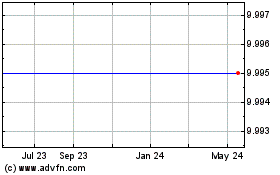University of Phoenix Survey Shows Convenience Outweighs Cybersecurity Fears for Majority of Americans
December 15 2016 - 11:55AM
Business Wire
Cybersecurity expert offers tips to stay secure
online while wrapping up this holiday shopping season
University of Phoenix today announced results from its
cybersecurity survey that found that 52 percent of U.S. adults are
willing to overlook cybersecurity risks for the sake of
convenience, which could negatively affect online shoppers as the
close of this holiday season approaches. According to the survey,
most respondents (60 percent) using unsecure, open Wi-Fi networks
don’t trust them with the security of their data, yet the
convenience of using the unsecured network outweighed any potential
risk.
“Millions of Americans are finishing up their holiday shopping
looking for last minute deals online to make sure the perfect gift
arrives in time,” said Dr. Kirsten Hoyt, academic dean, University
of Phoenix College of Information Systems and Technology.1 “Despite
the fact that public networks are vulnerable to security breaches
and hacking, the data from our survey suggests people have fairly
comfortable attitudes toward using them—perhaps a little too
comfortable.”
Additional survey findings include:
- 80 percent of respondents reported they
connect to public Wi-Fi networks at least once a week.
- 61 percent of respondents indicated
they use internet devices, such as cell phones, laptops or tablets,
on public networks daily.
- 39 percent of respondents state they
trust public Wi-Fi.
- 26 percent of respondents state they
strongly agree that there is no real difference between secured and
unsecured networks.
A wireless network is considered unsecured when it does not have
barriers in place, such as firewalls or passwords, to protect
personal information. They are not as secure in protecting data as
a home or work network,2 which could be particularly risky when
online users enter credit card and other personal information.
Twenty-eight percent of 18-to-34-year-olds shop regularly on
unsecured networks, putting financial and personal information at
even greater risk, according to the survey, which was conducted by
The Harris Poll on behalf of the University of Phoenix College of
Information Systems and Technology.
To help keep personal cybersecurity top of mind this holiday
season, Dr. Hoyt suggests the following simple practices to keep
information secure while shopping online:
- Before providing any personal
information to a retailer, make sure you verify how your
information will be used and stored.
- Be cautious about clicking on links or
opening attachments in emails from people you do not know. Emails
may contain malware that will allow cybercriminals to steal
information and hack devices.
- Ensure that your devices are secure and
their protection is up to date. Install anti-virus software and set
your operating system software to automatically download new
security patches as they become available.
- Be alert for fake websites, and do not
share any personal or financial information with a website you do
not trust. Stick to familiar websites when shopping online. If you
have to use an unfamiliar website, check the web domain on bbb.com
or scamadvisor.com.
“It’s even easier than you think to have personal information
hacked online, but there are steps you can take to help protect
yourself,” Dr. Hoyt said. “The holiday season should be filled with
joy, and taking the proper precautions to safely shop online can
help make sure you have a happy holiday and that the gifts you have
ordered arrive and arrive on time.”
Survey Methodology
This survey was conducted online within the United States by The
Harris Poll on behalf of University of Phoenix between Sept. 21-30,
2016, among 2,235 U.S. adults aged 18 and older who use a mobile
device on a network other than in their own home or at a workplace.
For the purposes of this report, qualified respondents will be
referred to as “rogue Wi-Fi” users. For complete survey
methodology, including weighting variables, please contact Cooper
Nelson at cooper.nelson@apollo.edu.
1. National Retail Federation2. Definition by Microsoft:
https://technet.microsoft.com/en-us/library/cc700820.aspx
About College of Information Systems and Technology
University of Phoenix® College of Information Systems and
Technology is a leader and advocate for the development and
advancement of IT in global business operations. The College offers
associate, bachelor’s, master’s and doctoral degree programs. Its
Faculty Advisory Council, composed of experts and leaders in the
field, helps ensure curriculum is on pace with national and
international market demands. Providing innovative digital learning
tools developed to suit all learning styles, the College focuses on
building technical knowledge and its successful application to
real-world business environments. For more information, visit
www.phoenix.edu/technology.
About University of Phoenix
University of Phoenix is constantly innovating to help working
adults move efficiently from education to careers in a rapidly
changing world. Flexible schedules, relevant and engaging courses,
and interactive learning can help students more effectively pursue
career and personal aspirations while balancing their busy lives.
As a subsidiary of Apollo Education Group, Inc. (Nasdaq: APOL),
University of Phoenix serves a diverse student population, offering
associate, bachelor’s, master’s and doctoral degree programs from
campuses and learning centers across the U.S. as well as online
throughout the world. For more information, visit
www.phoenix.edu.
View source
version on businesswire.com: http://www.businesswire.com/news/home/20161215006139/en/
University of PhoenixCooper Nelson,
602-557-8646cooper.nelson@apollo.edu
Apollo Education Group, Inc. (NASDAQ:APOL)
Historical Stock Chart
From Dec 2024 to Jan 2025

Apollo Education Group, Inc. (NASDAQ:APOL)
Historical Stock Chart
From Jan 2024 to Jan 2025
